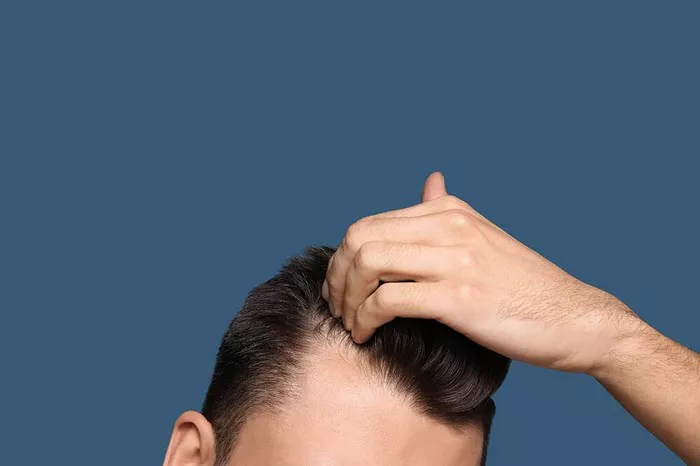Embarking on a journey towards a healthier lifestyle through procedures like gastric sleeve surgery is a transformative experience. However, one common concern that individuals often face post-surgery is hair loss. It’s essential to understand the timeline of this phenomenon to navigate it with awareness and patience.
Why Does Hair Loss Occur After Gastric Sleeve Surgery?
Hair loss after gastric sleeve surgery is a well-documented occurrence and is typically attributed to the rapid weight loss associated with the procedure. The body perceives the substantial weight loss as a form of stress, triggering a condition known as telogen effluvium. This condition disrupts the normal hair growth cycle, pushing more hair follicles into the shedding (telogen) phase.
Additionally, the surgery itself can impact nutrient absorption, leading to deficiencies in key vitamins and minerals crucial for healthy hair growth. Common deficiencies include iron, vitamin D, vitamin B12, and protein – all of which play vital roles in maintaining robust and vibrant hair.
When Does Hair Loss Begin After Gastric Sleeve Surgery?
Hair loss typically begins around three to six months after gastric sleeve surgery. This delay is due to the natural hair growth cycle, and the body’s response to the stress induced by significant weight loss. It’s important to note that not everyone who undergoes gastric sleeve surgery experiences hair loss, and the severity can vary among individuals.
The Peak of Hair Loss After Gastric Sleeve Surgery
The peak of hair loss usually occurs around six months post-surgery. This is when many individuals notice the most significant shedding. It’s crucial to remember that this shedding is temporary, and the hair loss is generally not permanent. The hair follicles are merely responding to the physiological changes associated with rapid weight loss.
How Long Does Hair Loss Last After Gastric Sleeve Surgery?
The duration of post-gastric sleeve surgery hair loss varies from person to person. For most individuals, the shedding begins to subside around the six-month mark, and by the time a year has passed since the surgery, many notice a gradual return to normal hair density.
By the end of the first year post-surgery, the majority of individuals observe a significant improvement in their hair volume and texture. However, it’s essential to recognize that individual experiences may differ, and some individuals may continue to experience mild shedding for a longer period.
Strategies to Manage Post-Gastric Sleeve Surgery Hair Loss
While hair loss after gastric sleeve surgery is a natural and temporary phase, there are strategies to manage and mitigate its impact on your daily life:
1. Nutritional Support: Ensure you are meeting your nutritional requirements, especially regarding vitamins and minerals crucial for hair health. A balanced diet or supplementation, as recommended by your healthcare provider, can support overall hair growth.
2. Hydration: Stay well-hydrated, as water is essential for overall health, including hair health. Dehydration can exacerbate hair loss, so make a conscious effort to consume an adequate amount of fluids.
3. Protein Intake: Prioritize protein-rich foods to support hair growth. Hair is primarily composed of protein, and an adequate intake is crucial for maintaining its strength and structure.
4. Supplements as Needed: If nutrient deficiencies are identified, your healthcare provider may recommend specific supplements to address those deficiencies and support healthy hair growth.
5. Gentle Hair Care: Be gentle with your hair to minimize stress on the follicles. Use a wide-tooth comb, avoid tight hairstyles, and limit the use of heated styling tools.
6. Consider a New Hairstyle: Embrace the opportunity to try a new hairstyle that complements your changing hair texture. A skilled hairstylist can offer suggestions that enhance your confidence during this transition.
Seeking Professional Guidance
If you find that your hair loss is causing significant distress or if it persists beyond the typical post-surgery period, it’s advisable to consult with your healthcare provider or a dermatologist. They can assess your individual situation, conduct necessary tests to identify any nutrient deficiencies, and provide guidance on potential interventions.
See Also: How to Prevent Lupus Hair Loss – A Comprehensive Guide
In conclusion
Hair loss after gastric sleeve surgery is a common and temporary side effect of the rapid weight loss associated with the procedure. Understanding when it typically begins, peaks, and starts to resolve can help individuals navigate this phase with awareness and patience. With proper nutritional support and self-care, many individuals find that their hair gradually returns to its pre-surgery state over time. Embracing the changes and focusing on overall health and well-being during this period can contribute to a positive post-surgery experience.


